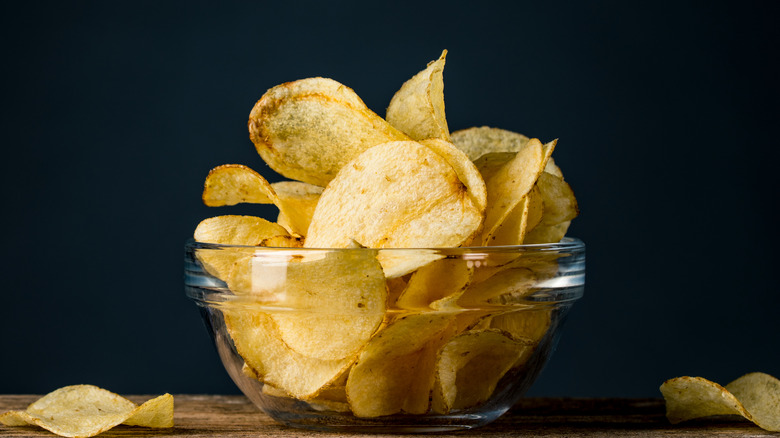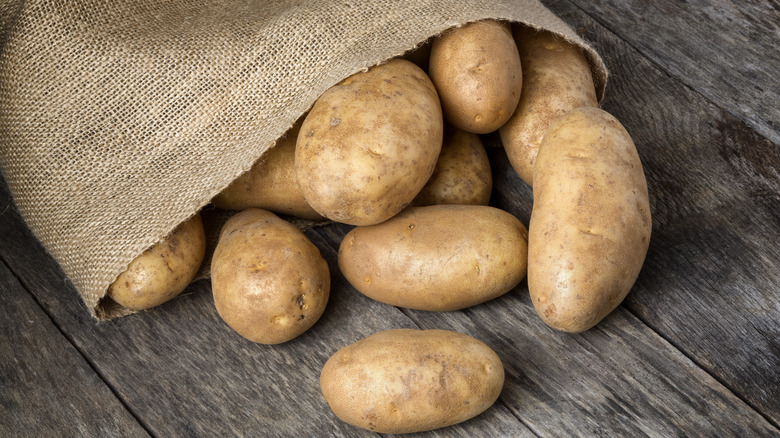What To Consider Before You Try To Make Your Own Potato Chips
With the global chip market valued at over $30 billion (via Expert Market Research), it's fair to say that we are most definitely a society of potato chip lovers. The ideal combination of salt and fat, The Healthy explains that both of these components spark a release of dopamine, drawing us back to just one more handful of chips. While crisps are nothing more than sliced potatoes that are fried in oil and salted, you might be tempted to make your own. However, you should probably consider a few factors before busting out the fryer.
There is a surplus of reasons for frying up thinly sliced spuds at home, one of the main reasons being health. Based on the fact that you're in charge of determining what goes into your chip recipe (including how much oil), you can better ensure quality. Likewise, you can even employ different cooking methods, although the best homemade chips should be fried if you want to get as close to store-bought bags as possible. Additionally, you might also just want to try your hand at a culinary project, which is also valid. Regardless of your motive, it's best to weigh your options before embarking on a potato chip-making adventure, and this is why.
It's a lot of work for a modest yield
With just a handful of ingredients, making potato chips is actually a lot easier said than done as it requires a lot of potatoes, and consequently a lot of prepping. According to the Food Network, in order to make a mere four-ounce portion of chips, roughly one pound of potatoes needs to be cleaned, sliced, fried, and salted. But, that's not all. There are also some other unforeseen factors that can further complicate the potato chip process.
Aside from choosing the right spuds — and enough of them — properly slicing them is also important. Despite the fact that using a mandoline is a no-brainer to achieve uniformly-cut potatoes, ThermoBlog explains that most mandolins can only deliver a thickness of 1/8 of an inch, unlike the store-bought chips that are 1/16 of an inch thick. Naturally, this can affect cook time and the final texture and color of the chip.
Rather than worry about producing the right texture, audible crunch, and correct proportion of salty goodness that are characteristic of a good potato chip, buying a bag of chips from the store is a much simpler and less time-consuming feat. Plus, you can still give store-bought crisps a wow factor by revamping them with a few ingredients for a made-at-home vibe without the hassle. Trust us, sometimes homemade just isn't worth the trouble.

